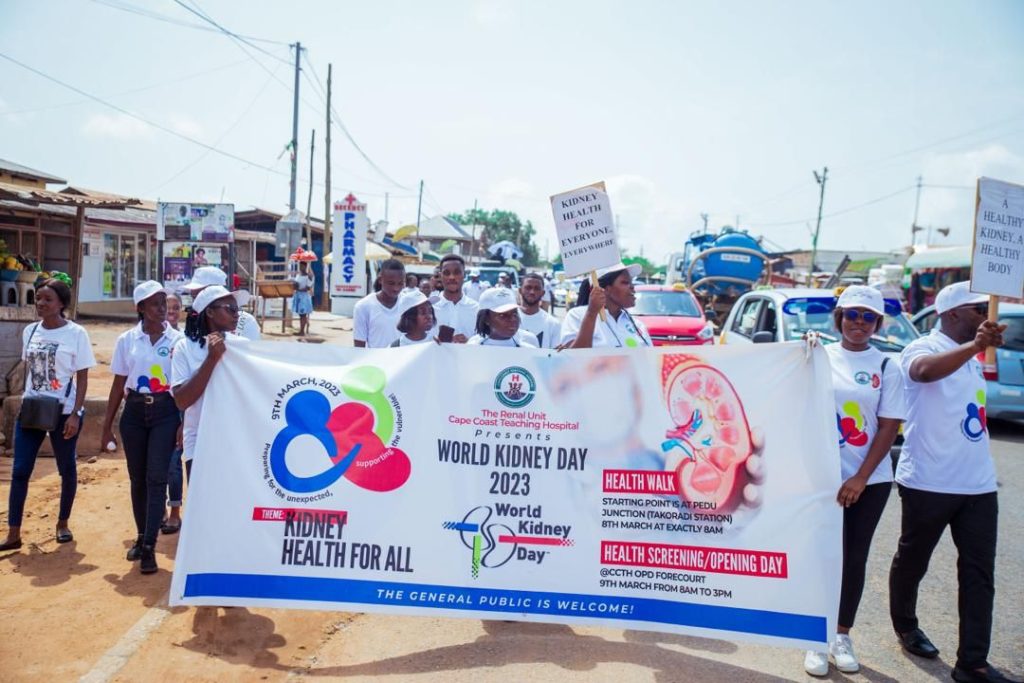By Victoria Agyemang
Cape Coast, March 13, GNA- Nana Afawuah Dum II, the Chief of Adansi Nyankumasi, has blamed the sale of wrong herbal medicines for wrong ailments as a key contributory factor to the high rise in kidney-related diseases in the country.
He observed that the frequent intake of some herbal medication recommended by fake herbalists and spiritualists was among the reasons why some patients were battling kidney diseases.
Nana Dum II, called on the government through the Food and Drugs Authority to monitor, inspect, and sanitise the activities of such practitioners and the medicines they publicly advertised in the media space, to prevent the intake of such harmful substances.
The Chief revealed these and narrated his ordeal to the Ghana News Agency (GNA) during a free health screening at Cape Coast in the Central region, to mark the 2023 World Kidney Day.
The screening, organised by the Cape Coast Teaching Hospital (CCTH) on the theme; “Kidney Health for All,” was to increase awareness of kidney-related diseases, and educate the public on the need to take routine check-ups seriously to safeguard their health.
Nana Dum II, who was diagnosed four months ago, explained that he battled hypertension for years and resorted to herbal medicines recommended by friends and family, especially those advertised on television and radio which almost led to kidney failure.
He said low education on kidney-related issues among others were the reasons why patients engaged in self-medication, which eventually compounded their situation.

“The treatment and management of kidney diseases are expensive,” he noted and called on the authorities to include some aspects of the treatment of the disease in the National Health Insurance Scheme (NHIS) to support patients in that regard.
Additionally, he advised the public to desist from patronising un-prescribed and over-the-counter medicines and seek medical attention when they were not feeling well.
Some patients of kidney diseases, including Mr Thomas Cann, the Founder of ‘Yes We Can Kidney Foundation,’ called on the Government to consider adding dialysis units to the proposed agenda 111 projects, and further remove taxes on medical inputs and supplies used for dialysis and kidney care to reduce the cost.
Mr Cann who is a journalist with TV3 stated that kidney patients were dying not from the disease but rather, from the high cost of treatment which deterred them from seeking continuous care.
Madam Eunice deGraft-Eshun, a Senior Nurse in charge of the Dialysis Unit of the CCTH, said though the hospital charged the lowest in dialysis and kidney services compared to other facilities, the government needed to intervene to lessen the burden on patients.
“Though we charge the least in dialysis, it is expensive as a patient needs to go through the process every week for survival, she added.
She advised the public to avoid the consumption of artificial spices which accumulate to affect the kidneys in the long term.
Madam deGraft-Eshun revealed that out of every three million population, about thirty thousand persons were battling with kidney diseases representing thirteen per cent of the total population.
GNA